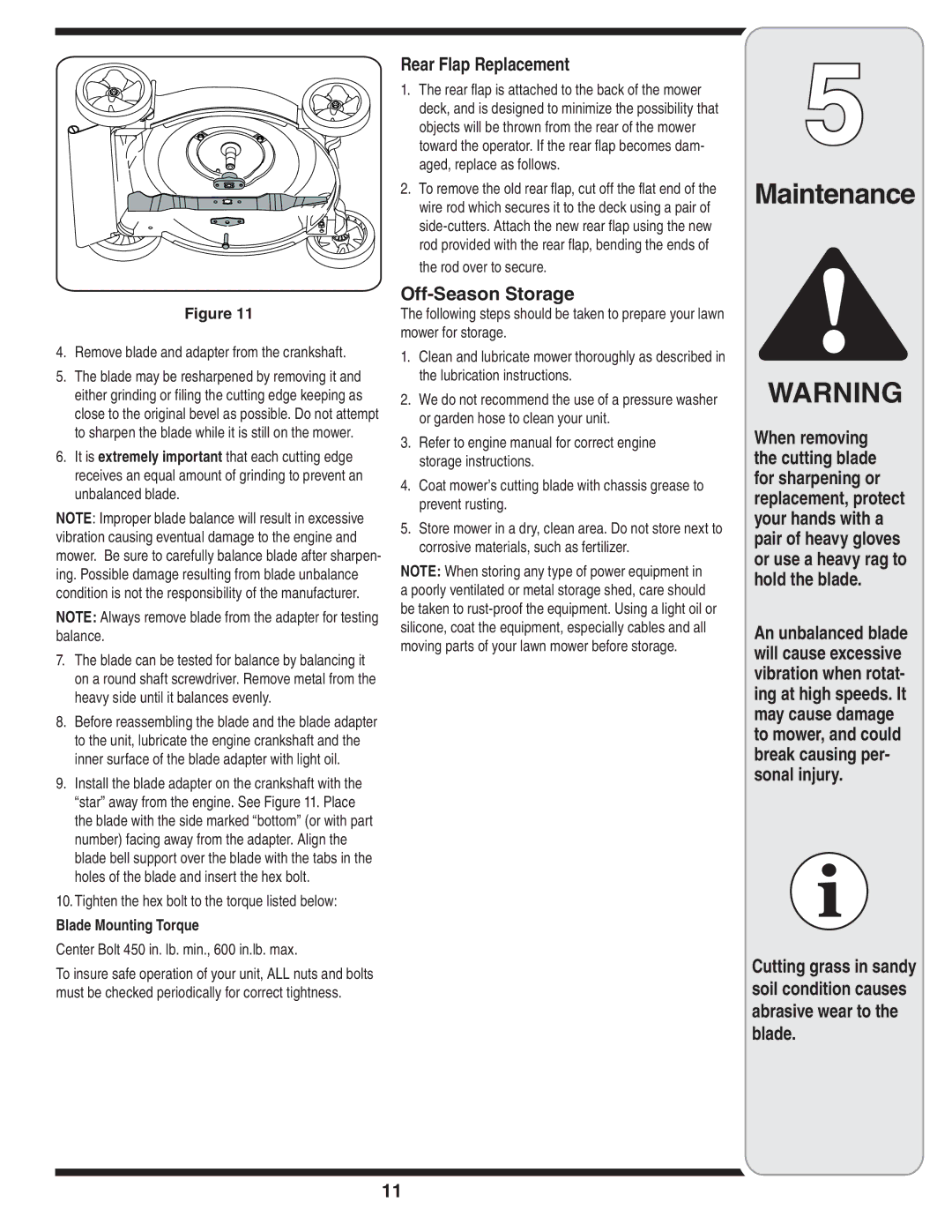Series 400 specifications
The MTD Series 400 is a cutting-edge line of equipment designed specifically for efficiency and versatility in outdoor maintenance. With design enhancements tailored for both residential and commercial users, the Series 400 stands out in its category thanks to its robust construction, user-friendly controls, and advanced technology.One of the main features of the MTD Series 400 is its powerful engine. Equipped with an efficient four-stroke engine, it delivers exceptional performance while maintaining low emissions, making it environmentally friendly. This engine also ensures reliable operation across various terrains, from flat lawns to hilly regions, providing users with the confidence to tackle any outdoor task.
Another notable characteristic is the ergonomic design. The Series 400 incorporates adjustable handlebars and cushioned grips that promote comfort for extended use. This design consideration reduces fatigue and enhances user control, making it suitable for both novice and experienced users alike.
The Series 400 incorporates several advanced technologies that set it apart from competitors. For instance, its intuitive control panel simplifies operation, allowing users to easily switch between different settings without confusion. Moreover, the inclusion of a quick-start feature means users can get to work without unnecessary delays, enhancing overall productivity.
Durability is a hallmark of the MTD Series 400, with high-quality materials used throughout its construction. Reinforced components and weather-resistant finishes ensure that the equipment can withstand the rigors of outdoor use, thus extending its lifespan significantly.
One of the standout technologies in the Series 400 is its cutting system, which is optimized for precision and performance. This system allows for adjustable height settings, enabling users to achieve the desired grass length while promoting healthy lawn growth. This adaptability is crucial for meeting diverse gardening needs.
Additionally, the MTD Series 400 is designed with maintenance in mind. Its accessible components make routine checks and servicing straightforward, which is critical for ensuring long-term functionality and reliability.
In summary, the MTD Series 400 combines powerful performance, ergonomic design, advanced technology, and durability to meet the needs of outdoor maintenance. Whether for residential gardens or commercial landscapes, the Series 400 equips users with the tools needed to achieve optimal results efficiently and effectively.

